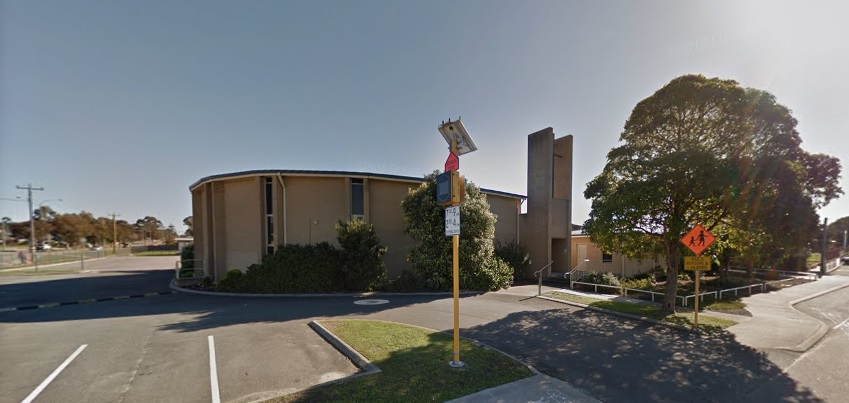Preview of FRCA Synod 2021


It’s another exciting synod year for the Free Reformed Churches of Australia. This year’s synod is scheduled to be held starting on June 14 in Albany, Western Australia. The reports for this synod are now publicly available here and I imagine other material will soon follow. Let’s review some of the noteworthy items on the agenda for Synod Albany 2021 so far. Since I’m delegated to this synod, I’m not going to be offering my views or opinions — what follows are just the facts, presented as objectively as possible.
Website
Synod 2018 mandated the Website Committee to design a new website for the FRCA. This has been done and it just remains for Synod 2021 to give the green light. In the meantime, you can find a preview of the new website at this link.
Book of Praise
Our last synod also mandated the development of an Australian Book of Praise and, to that end, a Standing Committee for the Australian Book of Praise was appointed. The Aussie church book is apparently at Premier Printing in Canada, but should be available by the time of Synod 2021. It will officially be called Australian Book of Praise: Anglo-Genevan Psalter.
Training for the Ministry
This is a significant report because these deputies were asked to develop a strategic long-term plan for an accredited Australian seminary. The plan proposes to explore the possibility of an Australian affiliate of the Canadian Reformed Theological Seminary. There are many unanswered questions about this route, but the deputies are asking for a new mandate which will see them finding the answers.
The report also proposes that deputies be mandated to develop guidelines for a vicariate system in the FRCA. This would see seminary graduates who originated in the FRCA being given the opportunity to have a one-year internship/vicariate in a local FRC congregation with an experienced pastor. The proposed model is based on the practice of the Reformed Churches of New Zealand.
Ecumenical Relations
As happens at every synod, a lot of time is going to be spent on relationships with other churches. Especially noteworthy at this synod will be a proposal from Classis North (originating from Launceston) to send observers to the next International Conference of Reformed Churches (ICRC). The FRCA was part of the founding of the ICRC. We left the ICRC in 1996, but this proposal suggests the time may be right to re-examine our involvement through a small step.
Within Australia, we have our Committee for Contact with the Evangelical Presbyterian Church and Southern Presbyterian Church. This committee is recommending that the FRCA continue discussions with the EPC and SPC with a view to eventually establishing sister church relations. While the marks of a true church are in evidence with both the EPC and SPC, there do remain outstanding issues to discuss with them. The committee is also asking the synod to clarify the status of a “Declaration” that was made by Synod 1986 with regard to “true church.” Was that a general doctrinal declaration and therefore a form of extra-confessional binding? Or was it simply a limited declaration meant to serve the narrow purposes of a discussion at Synod 1986 about the Presbyterian Church in Eastern Australia? The answer has implications for moving forward with the EPC and SPC.
Outside Australia our closest sister churches are the Canadian Reformed (CanRC). Among other things, our deputies were mandated to monitor developments in relation to Blessings Christian Church in Hamilton, Ontario. In their report, the deputies noted that there were many efforts in the past three years to openly discuss and debate these developments within the CanRC. They write that we need to respect the process of dealing with these things through the Canadian ecclesiastical assemblies. Going forward, the deputies recommend that referring to a single church is not necessary or appropriate, because these developments are “part of a larger dynamic within the CanRC” (p.53).
Geographically the Reformed Churches of New Zealand (RCNZ) are some of our closest sister churches, especially if you’re in Tasmania. Our deputies were mandated by the last synod to keep urging the RCNZ to be vigilant with regard to the Christian Reformed Churches of Australia. In their 2021 report, the deputies maintain that there is no need to continue doing this, seeing how as the RCNZ already do this on their own. If we continue to make that a point of discussion it communicates mistrust, according to the deputies’ report.
Finally, there are two North American churches with whom we’ve been exploring a relationship. Our deputies recommend that contact be continued with the United Reformed Churches and that a recommendation be made to Synod 2024 about a sister church relationship. With regard to the Orthodox Presbyterian Church (OPC), the deputies recommend not pursuing a sister church relationship at this time, not because of any issue with the OPC as such, but because of the practical difficulties involved. They also invite recommendations from the churches about the merits of pursuing ecclesiastical contacts with the OPC outside the context of a sister church relationship.
Conclusion
There’ll be other items on the agenda. In the weeks to come, FRCA consistories will be reviewing all these reports and the other proposals that have been submitted. Undoubtedly, in due time, there will be letters from some of the churches interacting with some of this material. This is good and fitting. It shows that the churches care about what happens at our broadest assembly and they care about the direction of our federation. I look forward to June!


